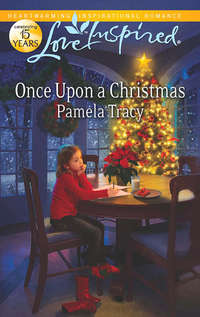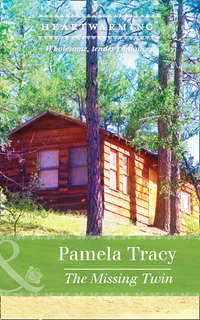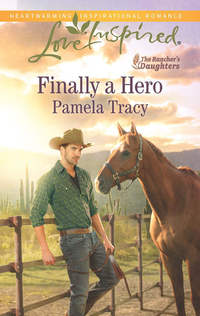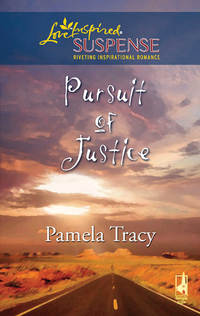
Полная версия
The Woman Most Wanted
No one said, “Yeah, right,” but he wondered if anyone besides himself thought it.
Five years. He’d been looking for her for five years. Still, disappearing was nothing compared to the way she’d reinvented herself.
He almost believed her name was Heather.
Almost didn’t count.
CHAPTER FIVE
HEATHER GOT THE feeling that while everyone—everyone, that is, except Chief Riley—knew they’d made a mistake, no one wanted to admit it.
No, that wasn’t quite right.
No one wanted to be the one to admit it and then try to convince Chief Tom Riley he was wrong.
She didn’t get the idea they were afraid of him. More, they were afraid for him.
“I can see why he mistook her for Rachel,” one of the cops muttered. The officer standing next to him nodded.
“I’d avoid Tom for the rest of the day,” another officer advised.
Heather wished she could avoid him, but he stood in the middle of the fingerprinting room, leaning against a counter and grilling the tall officer who’d taken her prints. “Find something,” he ordered.
Luckily, the police officer who’d already introduced himself to her as Daniel didn’t even blink. He just shook his head slowly.
Then came a few moments of waiting: the cops waiting for some action, Daniel waiting to be believed, Heather waiting for someone to yell “April Fool’s” and Tom waiting for what he would never hear because Heather was not Rachel.
“Find something,” Chief Riley repeated, leaning against a counter and staring at her image on the computer. He seemed mesmerized by her likeness.
He was tall; she hadn’t noticed that at first. His hair was a slightly curly and as blue-black as the crows that came to her backyard looking for food and making unnecessary noise.
The same color as her father’s, actually, but the knowledge didn’t encourage a connection of trust.
He looked at her now, but his eyes weren’t as piercing as back when they were on the interstate and he’d pulled her over.
Funny how she’d noticed his dark eyes throughout this whole outrageous venture. They’d gone from shock to hate to murderous. Now they were cloudy, as if some door had closed on an emotion so near to the surface he couldn’t control it unless he locked it away.
“It’s her,” he said. “It’s Rachel, and we can’t let her walk away. We might never find her again.”
“Tom, I agree, physically, in looks, you picked up Rachel.” This cop, the kid who’d retrieved her purse back on the interstate, was the one speaking.
The cop who’d introduced himself as Officer Guzman said, “You didn’t have a warrant, Chief. No other markers, besides the physical resemblance, support your arrest. Electronically, I’m finding no criminal history. Live scan doesn’t have her in their system. We can’t charge her.”
Frantically, Heather tried to think of what to say. Part of her was amazed they were talking so openly in front of her. If the chief of police had made a mistake, why weren’t they having this conversation behind closed doors. When she got a lawyer... No, she wouldn’t need a lawyer. If she needed a lawyer, she could use this conversation in her defense.
“I—”
They stopped talking and looked at her.
Chief Riley frowned, his steely gaze accusing her, making her feel guilty.
“I was only speeding a little,” she squeaked.
The man flinched a bit. Kid Cop managed to portray a hint of compassion—a blink, a slight contortion of his face that was almost a smile—and then he was back concentrating his attention on Tom.
“Look at her,” Chief Riley growled. “Unless Rachel Ramsey has a twin we don’t know about, that’s her. No mistake. There was a witness when Max died. Let’s do a lineup. Bring the convenience store clerk in, also. I guarantee he’ll confirm it’s her. That’s enough probable cause.”
Kid Cop didn’t say anything. When Heather glanced around the room, suddenly the other officers got busy as if there was so much to do in a room without desks, without general everyday conversation, without hope. Finally, an older man, not in uniform, walked over and put his hand on Tom’s shoulder. “We’ll do an appearance bond for the speeding and see what we can find before the court date. You’ll have at least seventy-two hours to prove you’re right.”
“Seventy-two hours, my foot,” Chief Riley growled again. He was glaring at Kid Cop, who already had a sheepish look on his face. “This isn’t a bailable offense, is it?”
Kid Cop shook his head.
“Which means,” Tom continued, “with an appearance bond, I don’t have enough time to do squat, but it gives her enough time to disappear again.”
“I won’t,” Heather protested, finding her voice. “I’m not guilty of anything, and there’s no need for me to disappear.”
Tom returned to growling. Kid Cop started to nod, but instead gestured to the man coming through the door.
An elderly man wearing a blue cambric shirt tucked into worn jeans with scuffed brown work boots took one step forward. “I’m Father Joseph McCoy,” he said to Heather. “I understand you might need a bit of help.”
Though surprised at the clergyman’s casual attire, Heather felt relief, pure and welcoming. She opened her mouth, but the words didn’t come.
By his stance and the way the cops took him in as one of their own, it was clear he’d been here before. But it wasn’t Heather, the room, or the bunch of cops that Joe looked at. It was Chief Riley.
“Who called him?” Tom demanded.
Joe took another step into the room, running a hand through his hair. “Tom, it’s good to see you.”
They were on a first name basis?
The other cops, spectators really, started to shuffle from the room. Judging by the expressions on their faces, she wasn’t the only one feeling relief.
“Miss Bianca called me,” Joseph McCoy said. “Someone told her that her boarder had been arrested. Bianca seems to think it’s taking a bit too long for you to realize your mistake and release her.” He glanced at Heather and smiled; it went all the way to his eyes. There was a sadness there, though, and Heather wondered what had put it there.
One of the cops muttered, “Trust Miss Bianca.” He was the first to back out of the room. None of the others focused on her, not really. They were focused on Chief Riley as they exited.
If she’d have been anywhere else, Heather would have laughed out loud. It just figured. Even though she’d been the one harassed and accused, it was Chief Riley who needed saving.
* * *
HE’D ACTUALLY VOUCHED for her! Used the word innocent to describe her and claimed that Bianca Flores knew there’d been a mistake.
Tom didn’t know how Bianca could be so sure, and Father Joe was no better, siding with a woman who coldheartedly assisted her boyfriend in murder. Tom watched as Father Joe led the woman going by the name of Heather Graves to his old white truck. Her blond hair swayed in the wind. She held herself stiffly, arms folded as if fighting off a chill that didn’t exist—at least not in Sarasota Falls, New Mexico, in October. They were going to fetch her car. The tow company had retrieved it, the order hadn’t been canceled.
Unlike Tom’s arrest.
Staring out the window at their retreating figures, Tom felt somewhat like a little boy watching as someone important disappeared from his life. Years ago, that someone had been his real father—who hadn’t been much of a father at all. Tom barely remembered him.
Then, five years ago, it had been Max dying.
Later, it had been his wife, who complained that Tom was married to his job. That it took him three weeks to get around to calling her and suggesting he still loved her and—
She’d hung up, and he really hadn’t thought of her again, until this business with Rachel had come up.
Rachel would literally disappear, Tom had no doubt. Heck, maybe this time she’d become a teacher in Miami or a lawyer in Nashville. She was good at reinventing herself.
Joe, well...Joe wouldn’t disappear. Since Max’s death, Father Joe had faithfully—at least once a month—either stopped by the police station or phoned. He always wanted to take Tom out to breakfast, lunch, or even invite him to some sort of social activity. In Tom’s mind, Father Joe was someone to avoid, someone who made Tom worry about choices and how everything came together only to eventually fall apart.
“Really,” Oscar Guzman said, “she might not be Rachel.”
Tom shook his head at the only man brave enough to come back to the room. Oscar’d only joined the force last year, but he’d been FBI before that and a marine even before that.
He was, besides Daniel, the only officer willing to tell Tom he “might” be wrong who still, in his naïveté, had a wide-eyed optimism about people.
Tom had been that young once.
“How can you say that with such certainty?” he asked. Turning to Daniel, he added, “And, judging by the way you’ve been banging on the keys of your computer, it’s looking like Heather’s fingerprints are new to the system.”
“No history,” Daniel agreed.
“Has anyone contacted the convenience store clerk for identification? I don’t care if it starts a media storm. I want it done.” Tom hated the way his words sounded—desperate, human, uncertain.
“It’s not the media that’s kept us from doing more,” Daniel said. “It’s the evidence, or should I say lack thereof. Nevertheless, I emailed him her photo. Now we’re waiting for a response.”
“Call him.”
“I did.” Daniel sounded a bit exasperated. “He didn’t answer. Even if he says it’s not—”
“You haven’t proven Heather is not Rachel.” Tom’s words weren’t an accusation, but were simply a statement of fact.
“And you haven’t proven she is.” Daniel looked a little guilty, as if he personally was at fault. But it wasn’t Daniel’s fault that Rachel had avoided being fingerprinted. She’d gotten lucky, more than once, possibly had gotten lucky again today...except now they did have the woman’s, Heather’s, fingerprints.
Tom glanced out the window and watched Father Joe shut the passenger side door and walk to the driver’s side of his truck. Before opening his door, he looked up and his eyes locked with Tom’s.
Father Joe was getting old, soft. And right now, he looked a little distressed. Not a look Tom had seen on Father Joe.
“I wonder why Father Joe is getting involved?” Daniel said.
“I’m going to find out,” Tom promised. What Tom wanted to know, more than anything, was why Bianca had called Joe instead of coming herself. She’d never been one to shy away from a sticky situation, and apparently she liked Heather.
One thing Tom couldn’t argue, Joe was the kind of preacher who greeted everyone as if they were already friends and wouldn’t know a foe if the person outright threatened him. That didn’t mean Joe wasn’t smart, though. The friend-rather-than-foe attitude had alleviated more dangerous situations than Tom’s badge and gun ever had.
Joe’s presence had diffused this one. The other cops went back to work as Joe drove Heather away from the station, and Tom turned to head back to his office.
“Think of it this way,” Daniel said. “In my quest to prove she’s not Rachel, I just might prove she is. Except for that height thing.”
Tom wished he didn’t have to listen to logic. He wanted time alone, time to think, time to look into just when Heather Graves arrived in town, where she was working and what friends she’d already made.
“I don’t think you’re listening to me,” Daniel complained.
“I’m listening,” Tom murmured, watching as Joe and Heather disappeared into traffic.
Tom started to get irritated but then noticed how intently Daniel studied his computer. “You got something?” Tom finally asked.
“I do,” Daniel said. “There’s quite a few things to think about when it comes to this case. Let’s face it. The resemblance between Rachel and Heather, it’s uncanny.”
“They have to be related.” Tom walked over and stood behind the captain.
Daniel nodded. “That’s what we need to investigate.” He hit a few more buttons and Heather’s photo shrunk to half the page. Then, Daniel arranged the grainy shots of Rachel—the most recent they had, taken at the convenience store the day Max died—next to Heather. After a moment, he shrunk the two photos so they took up a third of the screen. Then, photo after photo appeared in the center box, hundreds, before finally, one froze in place. The woman was blonde, but it looked poorly dyed. Her hair was short and jaggedly cut, but there was something about the turn of the head, the way the older woman’s chin jutted out, the somewhat pointy eyebrows.
“This, my friend,” Daniel said, as if Tom needed a reminder, “is Rachel Ramsey’s mother.”
“Was,” Tom reminded him.
Diane Ramsey had a fairly extensive rap sheet and Tom had followed her through Sarasota Falls’s underbelly, sometimes to arrest her, but most often to keep an eye out for her daughter. Diane had changed her hair color weekly, wore wild clothes, although nothing cosmetic could hide her battle with drugs and alcohol.
Rachel Ramsey had been a pretty girl. It was anyone’s guess if she took after her mother.
Daniel worked his magic with the computer, going through dozens of photos of Heather Graves, who had a web presence. The officer enlarged, shrunk, stretched, sharpened. Then, he said, “This one.”
“Got it.”
“Yes!” And the image of an older woman appeared onscreen, again blonde, but not poorly dyed, this lady had a tired but happy smile on her face.
Finally, satisfied with his findings, Daniel said, “Heather’s mother, taken from her driver’s license. Now we have Heather’s photos and fingerprints, and I’m sure Diane’s DNA is still in the system. We should run a comparison.”
Tom agreed. “Anything to get us closer to catching a killer.”
CHAPTER SIX
A CATHOLIC PRIEST. She was sitting in the passenger seat of a big white truck being driven by a priest. She felt the need to confess but didn’t know for what or even how.
“Thank you so much for getting me out of there. Why did you do that? How did you know?” she finally asked.
“Miss Bianca asked me to.”
Heather nodded. She’d figured out the owner of the bed-and-breakfast liked to help her guests, but this went a bit beyond common courtesy.
“I want to know everything,” Father Joe McCoy said. “What happened?”
“I honestly don’t know,” Heather admitted. “One minute I was driving, taking a scenic tour, sort of looking for Turner’s farm.”
“It would be closed. The Turners had a honey booth in the festival.”
“That’s where I picked up their brochure with directions to their farm. I was a bit lost. Then, suddenly, I notice a cop behind me—the chief of police, no less—and soon he has his siren on and is motioning me to the side of the road.
“Were you speeding?”
“Maybe a little, which is unusual for me. I slow down for yellow lights.”
“As you should,” he agreed.
“He thought I was someone named Rachel Ramsey. Do I look a lot like her?”
Father Joe didn’t answer but clutched the steering wheel, white-knuckled, reminding her of the way Chief Riley had acted while driving her to the police station.
“Do you know her?”
For a moment, she didn’t think he would answer.
“Rachel,” he said, turning into Bart’s Auto Repair and Towing, “is a young woman born and bred in Sarasota Falls who is a few years younger than you, and who has made a few poor choices.” After a moment, he amended, “More than a few.”
“I look like her?”
“Yes, quite a bit. But anyone who knows the two of you, once they got close enough, could tell you apart.”
“So, you can tell us apart?”
“Oh, yes,” he said. “Quite easily.”
“Are we related?”
He didn’t so much as hesitate. “No one knows who Rachel’s father was. And her mother wasn’t born here in Sarasota Falls.”
He parked in the lot, choosing a spot by the door, and exited the vehicle. She followed him into a tiny office located next to a large repair shop.
“There is no Bart,” Father Joe said, pointing to the sign that read Bart’s Auto and Towing. “There is a man named Taylor Jacoby. He bought the business from Bart and didn’t bother to change the name.” Heather didn’t smile. Nothing felt funny, not after the day she’d had.
“I’ve no doubt,” Father Joe continued, “that he’s already got your vehicle here. If he tries to charge us, I’ll have him call the chief. Since you were brought in by mistake, the city will need to cover the cost.”
“How do you know all of this?”
“You’re not the first person I’ve picked up from the jail.” He grinned and added, “But I think you’re the first who claimed to be innocent who really was.”
Funny how good it felt to be believed. The reassurance erased some of the stress. Thank goodness she was no longer at the police station, no longer being questioned. And there were two people in town who believed her: Bianca and Father Joe.
She turned to thank him, but he was over by a candy machine talking to a little boy. Shaking her head at how surreal it was, she headed for the front desk and started the process to get her vehicle. It took all of ten minutes and two phone calls to the chief of police. Keys finally in hand, she went back to find Father Joe. Part of her just wanted human contact, someone to feel safe with. Another part of her wanted someone who would answer her questions. “You hungry?” she asked him.
Joe hesitated a bit, then nodded. “Quite. Have you been to the Station Diner? That’s train station, not police station.”
“No, but I’ve driven by it.”
“Let’s go there. It’s a staple around here and should be pretty empty since tonight’s big hooray for the Founder’s Day celebration is a chili cook-off. Unless you like chili?”
She loved chili but right now didn’t feel like being in a crowd. “The diner would be fine.”
She followed him away from Bart’s. The sun had almost disappeared behind grayish clouds. A slight wind swayed the trees that lined the fairly empty streets. The diner was two blocks from the well-lit high school, where the cook-off was being held. She remembered seeing a flyer for it. Faint lights chased each other in the sky. Heather rolled down her window, took a breath of fresh air—so different than the police station’s—and listened to the sound of cheering.
The Station Diner’s parking lot had three cars. She pulled into a spot and Father Joe positioned his car next to hers. Together they walked to the heavy wooden door and pushed it open.
She’d gone back in time. A waitress wearing a retro-looking blue uniform, complete with a conductor’s hat, guided Heather and Joe to a booth. “Hi, Joe,” she greeted.
“Good evening, Maureen. This is Heather Graves. She’s new to town, been here less than a week. Maureen’s been here almost a year now.”
“Nice to meet you,” Maureen said.
“Great place,” Heather said, looking around at the decor. She could well imagine that at one time this area had been where passengers waited for their trains, but the benches had been replaced with tables and booths. The window where tickets would have been sold now featured a cook dressed in white rather than an agent dressed in black with a cool hat. The walls and shelves had railroad paraphernalia. The only things out of place were the animal heads fastened right above the restroom signs and over the chalkboard menu.
Joe settled in and handed Heather a menu from behind the napkin holder.
“Are you going to eat?” Heather asked when he didn’t take a menu for himself.
“I’ve got their selection memorized.”
It took Heather a few minutes to order. Then, after taking a long drink of water, she said, “I got the idea from listening to the officers that Rachel was responsible for someone’s death. Is that true?”
Joe’s lips went together, his brow furrowed and his nostrils flared a little.
Heather almost wished she hadn’t asked. But she’d just spent the last few hours being interrogated and falsely accused. She’d never forget the way the cell walls seemed to close in on her.
“I’ll check online and find out on my own,” Heather said. “I’m sure the story’s there.”
“Many stories about what happened that day are online,” Joe agreed. “And much of what you read will be factual. But it’s what’s not said that makes a difference.”
It made her think about her parents, how close her father had kept to the truth, and how her trying to figure out what their secrets were had led her here.
His phone pinged then, and with an apologetic look, he answered. She didn’t hear much, just “Oh, I was hoping for better news” and “Not entirely unexpected” and “I’m so sorry you have to deal with this loss. I’ll be right there.” His expression changed from concern to distress to pure sorrow.
She recognized the sorrow as she’d worn the expression quite a bit since her parents’ accident.
Nodding the whole time, Father Joe paused, listened and then said, “Someday that young man will realize exactly what he’s done, and he’ll have to live with it.”
When he ended the call, he said, “Lucille Calloway just passed away. She was in a car accident last year and never got her full strength back. I’m heading over to be with the family.”
“What about the young man?”
“Richard Welborn. I’m guessing Chief Riley was heading to the Welborn place to see if Richard had returned. He was driving drunk last Christmas and hit Lucille head-on. She was an amazing lady, in her eighties, and still going strong, at least back then. She went through many months of therapy and never really recovered. Depending on others made her miserable.” Father Joe smiled, looking a bit happier. It only lasted a moment before he added, “Richard was an amazing young man. People hereabouts forget that. He moved here with his mother, took care of her. I’m so surprised he was driving drunk. Still, can’t get past that he posted bond and disappeared. Never made restitution or apologized. Lucille’s family is angry at him although Lucille wasn’t.”
He stood, looked at the counter and said, “Maureen, I’ll take my food to go if you don’t mind.”
“Already packed. I heard your phone go off and figured you’d be leaving.”
Father Joe left, and Maureen put Heather’s meal on the table, asked if she needed anything and then walked over to another customer.
Heather had never felt so alone. For a few long seconds she just sat there, trying to get her bearings, and wondered what she should do next. Maybe leave Sarasota Falls? Some secrets were best left buried. Stay? Find out if she had family? Well, she didn’t have to decide tonight.
It had been a long time since breakfast. Heather stabbed a piece of chicken-fried steak and brought the fork halfway to her mouth before freezing.
Chief Tom Riley came through the restaurant’s front door, and his eyes honed in on hers. He said something to Maureen, and then made his way over to stand in front of her.
“I just lost my appetite,” she said, putting her fork down.
* * *
“MAY I SIT?” He didn’t like asking permission. He wanted to sit, question...yes, even press. Yet, he had to watch his step, do this the right way.
“I really don’t feel like company,” she said.
“And I won’t be good company,” he responded. “But, there are a few things I still need to know. This—” he looked around the diner “—is as good a place as any.”
She didn’t protest, so he sat across from her, so close he could reach out and brush a finger down her cheek if he wanted. He didn’t want to, but did struggle to accept that she wasn’t Rachel. Everything but his memory of a face proved she wasn’t Rachel.
“How old are you?” he asked.
“Twenty-seven,” she responded.
“Born?”
“In Phoenix, Arizona.”
“I mean what year.”
She responded with the year and stared at him. In all the time he’d walked a beat, driven the streets, worked the desk and finally taken the job of chief, he’d never had a suspect so obviously wrong yet so right. He couldn’t stop looking at her, but he knew he needed to be professional, go with the idea that she indeed knew nothing.








